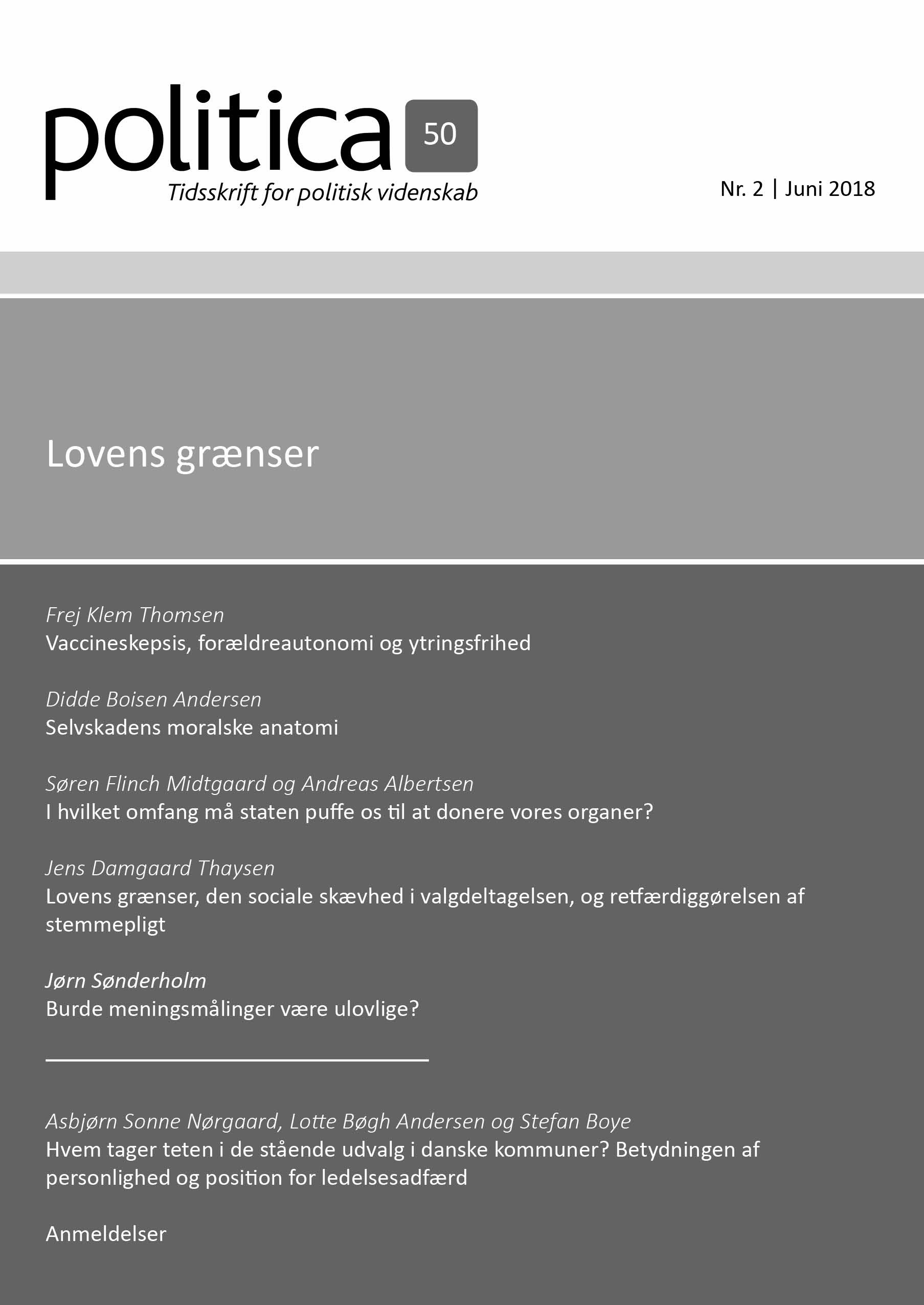Who takes the lead in the standing committees in the Danish municipalities? The significance of personality traits and committee positions for leadership behavior
DOI:
https://doi.org/10.7146/politica.v50i2.131209Abstract
Politicians who serve in standing executive committees can exercise active leadership but are not compelled to do so. Active leadership may be related to politicians’ personality traits and the position they hold in the committee. We investigate these antecedents of politicians’ use of transformational and transactional leadership using a unique survey of Danish local councilors that includes validated measures of the Big Five personality traits and leadership behavior. We theorize and find that politicians’ personality traits, notably Extraversion and Conscientiousness, are associated with their self-reported leadership behavior. The position as committee chair is also associated with leadership behavior among local councilors but less so.





